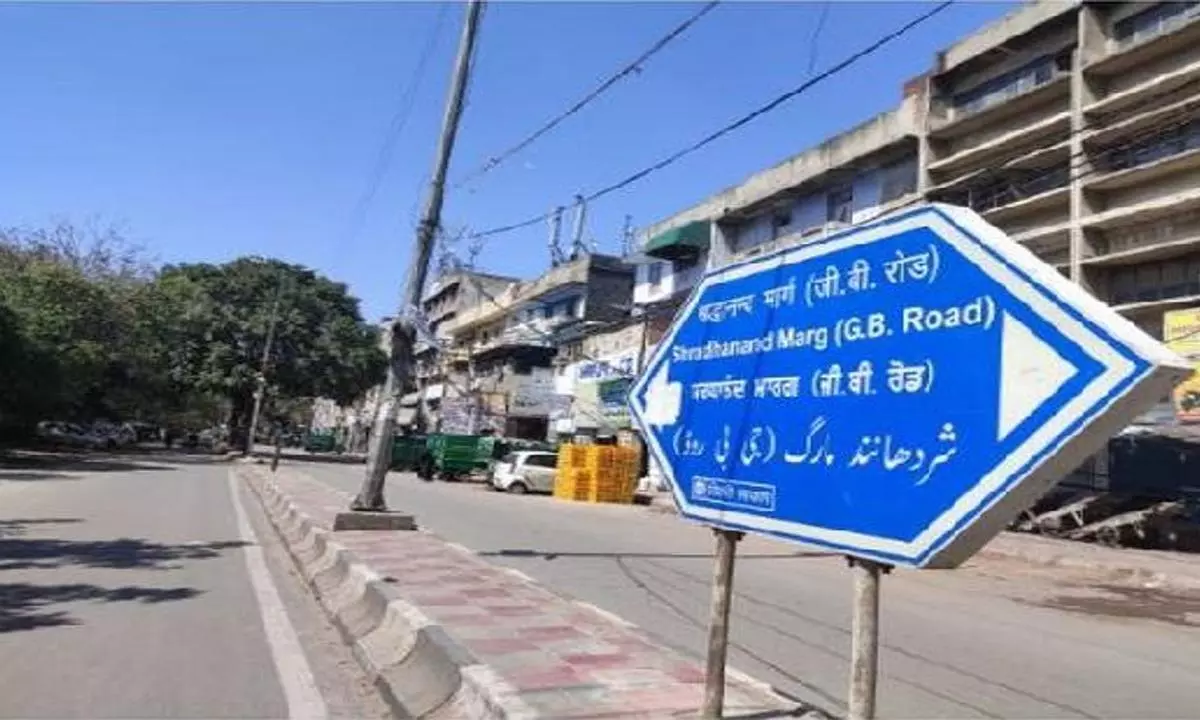Sex workers on Delhi's GB Road battle poor living conditions ahead of assembly polls

New Delhi: A week ahead of Delhi assembly elections, in the heart of the city is the Garstin Bastion (GB) Road, home to sex workers who continue to struggle daily for access to basic civic amenities like reliable electricity, clean drinking water, and sanitary living conditions. As political parties gear up for assembly polls on February 5, with vote counting on scheduled for February 8, these workers are left hoping that the newly elected government will address their long-standing issues.
Savitri (name changed), a sex worker for the past 30 years, lamented the lack of attention from political leaders.
"We cast our votes like everybody else, but we are the least considered. We live a life where four or five women share a single room. At least 10 to 15 women live on one floor, with only one washroom for all of us," she said.
Reshma (name changed), a sex worker around 30-years-old, described the constant struggle with unhygienic conditions due to inadequate water and sanitation.
She said in the morning, there is no electricity for three to four hours and it is the same even at night. In the winter, it's manageable, but summers are unbearable.
She said that their rooms do not even have proper windows for air or sunlight.
A walk through the brothels reveals cramped, poorly ventilated rooms barely large enough to fit a bed. Narrow drains from washrooms run just outside their doors, adding to the unsanitary conditions.
Despite these challenges, political leaders seldom address the situation in GB Road during their campaigns. "Every election, they come and make promises, but nothing ever changes," said Rani (name changed), a sex worker who has lived in the area for over a decade.
Amid the campaign slogans and rallies, the voices of one of the city's most marginalised communities remain largely unheard.
Neha (name changed), another sex worker, highlights the persistent lack of basic infrastructure.
She said, "The water pipeline has been broken for months, but no one comes to fix it. The water we get is dirty, but we have no choice but to use it."
"We're treated like we don't matter. No one talks to us, and when we complain, nothing gets done," she added.
"We don't even have ration cards. Many NGOs come and listen to our problems, but no one tells us what we can do or help us out to make living a little better," said Anita (name changed), around 70-years-old.
"Governments come and go, but our situation remains the same," she said.
A hardware shopkeeper who has operated on GB Road since 1949 traced the area's origins to colonial times when it served as a trading hub for hardware and machinery.
Its reputation for sex work emerged later due to its proximity to transport hubs like the Old Delhi Railway Station.
Today, GB Road houses nearly 74 brothels, housing hundreds of women, many of whom have been trafficked. Despite societal stigma, they continue to serve the city's underbelly, even as their voices remain unheard.

